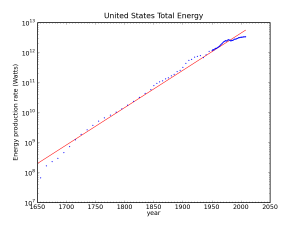[An updated treatment of some of this material appears in Chapter 14 of the Energy and Human Ambitions on a Finite Planet (free) textbook.]
 When we enter the decline phase of conventional oil—likely before 2020—we will scramble to fill the gap with alternative liquid fuels. The Hirsch Report of 2005, commissioned by the U.S. Department of Energy, took a hard look at alternatives that could respond to the scale of the problem in time to have an impact. Not one of the approaches deemed to be currently viable in the report departs from fossil fuels. But what about biofuels? To what extent can they solve our problem? We’ll dip our toes into the math and see where a first-cut analysis leaves us.
When we enter the decline phase of conventional oil—likely before 2020—we will scramble to fill the gap with alternative liquid fuels. The Hirsch Report of 2005, commissioned by the U.S. Department of Energy, took a hard look at alternatives that could respond to the scale of the problem in time to have an impact. Not one of the approaches deemed to be currently viable in the report departs from fossil fuels. But what about biofuels? To what extent can they solve our problem? We’ll dip our toes into the math and see where a first-cut analysis leaves us.
Views: 5034






